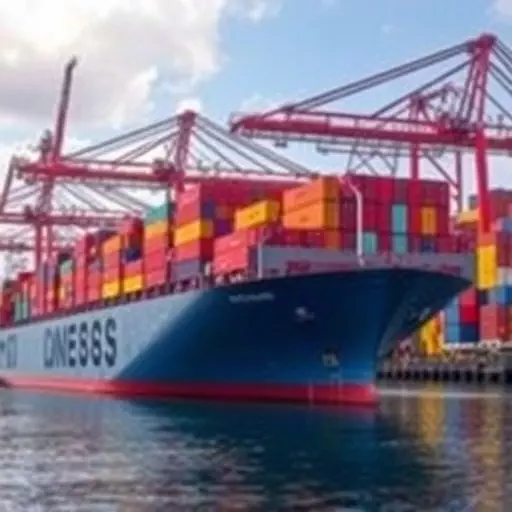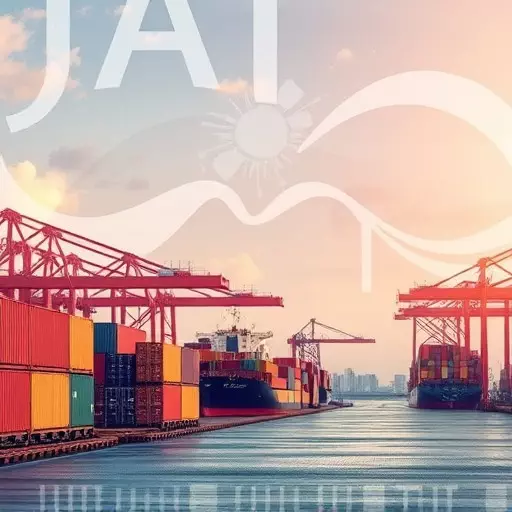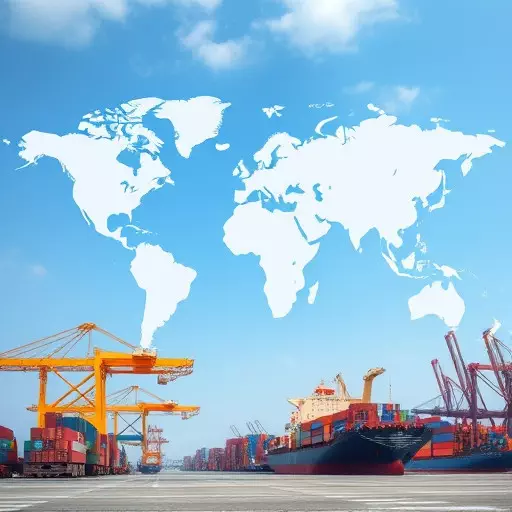Adhering to global shipping regulations, notably ISPM-15, is vital for Holland, Ohio-based international shippers. This standard dictates wood packaging treatment and documentation to prevent pest spread, avoiding port delays, fines, or goods seizure globally. To maintain compliance, companies must ensure wooden pallets, crates, and dunnage meet ISPM-15 standards through proper treatment and accurate documentation, staying updated on shipping law changes, and collaborating with compliant carriers. This ensures responsible business practices, fosters trust, and promotes a smooth global supply chain.
Navigating global shipping regulations is essential for businesses engaged in international trade, especially with strict standards like ISPM-15 compliance in Holland, Ohio, and worldwide. Understanding these rules is crucial to avoid legal pitfalls and ensure smooth operations. This article explores the world of global shipping regulations, focusing on ISPM-15 requirements. We’ll guide you through steps to achieve REACH compliance, highlighting the role of international shipping standards for responsible and successful shipping practices in diverse markets.
- Understanding Global Shipping Regulations and ISPM-15 Compliance
- The Role of International Shipping Standards in Holland, Ohio, and Beyond
- Steps to Ensure REACH Compliance for Your Shipping Operations
Understanding Global Shipping Regulations and ISPM-15 Compliance

In the realm of international shipping standards compliance, understanding and adhering to global shipping regulations is paramount for businesses, especially those operating in areas like Holland, Ohio. These regulations are designed to ensure safety, security, and environmental protection during the transport of goods across borders. One critical aspect that shippers must be aware of is ISPM-15 (International Standard for Plant Health Measures) compliance. This global standard sets requirements for packaging, treatment, and documentation to prevent the spread of pests and diseases in wood-packaging materials.
Non-compliance with ISPM-15 can result in significant delays, fines, or even seizure of goods at port facilities worldwide. Shippers must ensure that all wooden pallets, crates, and dunnage used for packaging meet these standards. This involves proper treatment of wood to kill or prevent the activity of pests, as well as accurate documentation to prove compliance. Staying up-to-date with global shipping regulations and implementing robust ISPM-15 adherence procedures are key steps towards smooth international shipping operations from Holland, Ohio, and beyond.
The Role of International Shipping Standards in Holland, Ohio, and Beyond

In Holland, Ohio, and across the globe, international shipping standards play a pivotal role in ensuring safe and sustainable transportation of goods. Compliance with global shipping regulations, such as those outlined by the International Maritime Organization (IMO) and the International Standard for Physical Distribution (ISPM 15), is not just a regulatory requirement but a necessity for responsible business practices. ISPM 15 compliance, in particular, focuses on preventing the international spread of pests and diseases through strict packaging and treatment protocols.
These standards go beyond mere adherence to laws; they foster trust among trading partners and facilitate smoother logistics operations. By adhering to international shipping standards, companies like those in Holland, Ohio, can ensure their goods meet global safety and environmental protection criteria. This not only reduces the risk of delays at borders but also promotes a harmonious and efficient global supply chain, enhancing the overall competitiveness of businesses operating both domestically and internationally.
Steps to Ensure REACH Compliance for Your Shipping Operations

To ensure your shipping operations meet the stringent requirements of global shipping regulations like REACH, follow these crucial steps. First, conduct thorough research on the specific chemicals in your goods and their associated risk assessments. This involves understanding the International Shipping Standards Compliance (ISSC) guidelines, especially ISPM 15 for wood packaging materials. Next, implement robust internal controls to track and manage these substances throughout the supply chain. This includes proper documentation, employee training, and consistent application of relevant regulations.
Additionally, stay updated on any changes in global shipping laws and adapt your processes accordingly. Collaborate with reliable carriers who have a proven track record of REACH compliance to avoid delays or non-compliance issues. Regular audits and inspections should be conducted internally and by external bodies to verify adherence to these international shipping standards from Holland, Ohio, to destinations worldwide.


